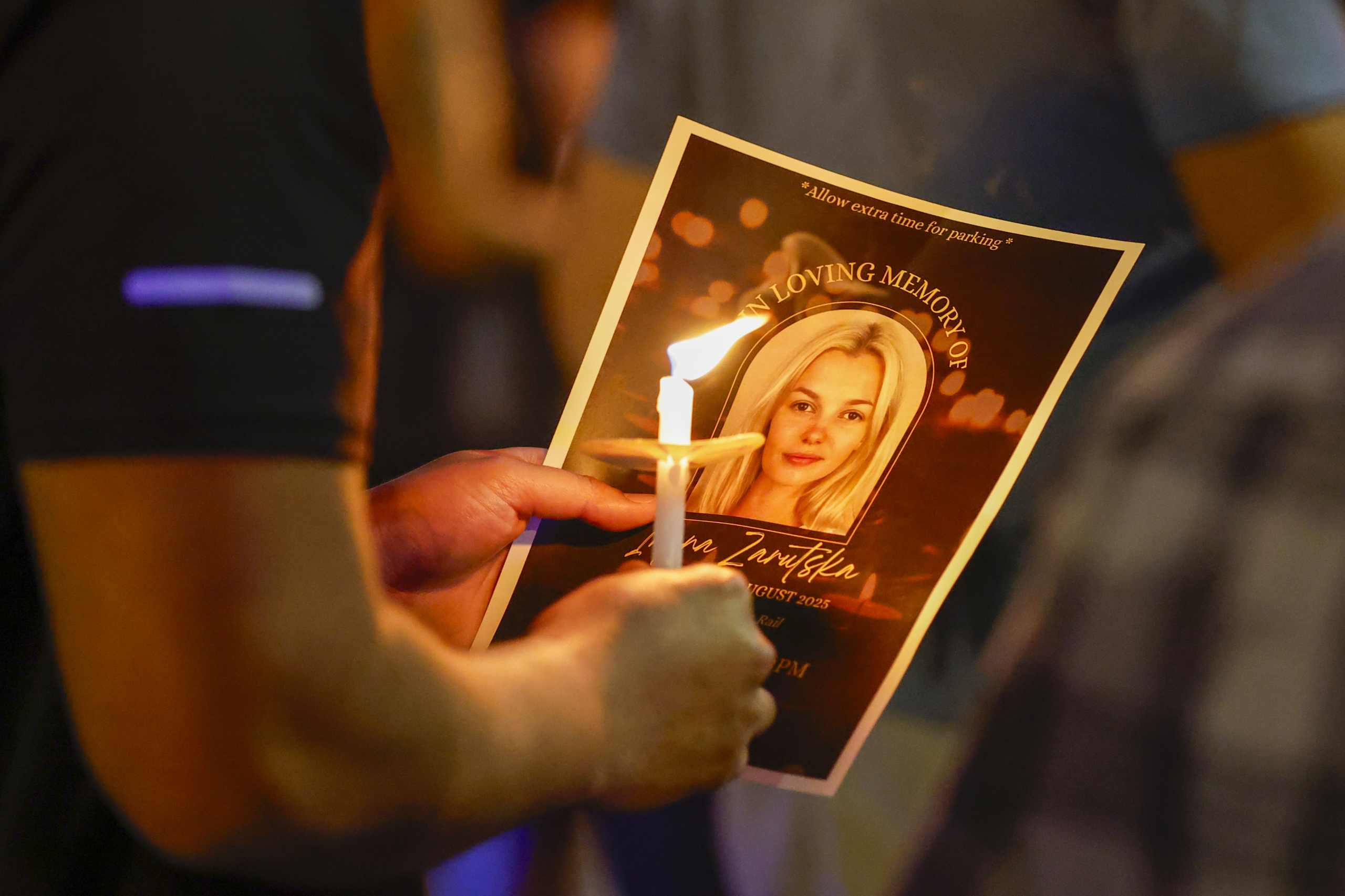By JOEY CAPPELLETTI and STEPHEN GROVES Associated Press
WASHINGTON (AP) — Gathered in the unusually quiet halls of the U.S. Capitol, Republican leaders faced the cameras for a second day and implored Democrats to reopen the government.
“We want to protect hardworking federal workers,” House Speaker Mike Johnson said Thursday morning, before criticizing his counterparts. “Democrats are the ones who have decided to inflict the pain.”
It’s a striking role reversal. Budget standoffs for years have been the bane of Republican congressional leaders who had to wrestle with conservatives on their side ready to shut down the government to get their policy demands. Democrats often stood as willing partners to keeping the government open, lending crucial votes to protect programs they had championed.
“Both parties have completely flip-flopped to the opposite side of the same issue that hasn’t changed,” said GOP Sen. Rand Paul. “Congress has truly entered the upside down world.”
The change is happening in large part because President Donald Trump exercises top-down control over a mostly unified GOP — and faces little internal resistance to his budget priorities. The shift is unfolding as the shutdown threatens government services, forces the furlough of federal workers and gives the Trump administration another opportunity to remake the federal government.
Democrats, meanwhile, have been left scrambling for leverage in the first year of Trump’s second term, using the funding fight to exert what influence they can. It’s an awkward posture for a party that has long cast itself as the adults in the room during shutdown threats — something not lost on Republicans.
At a Wednesday morning news conference, Republicans looped an old clip of New York Democratic Rep. Alexandria Ocasio-Cortez declaring, “It’s not normal to shut down the government if we don’t get what we want.”
A new GOP consensus on short-term spending
Short-term government funding legislation — known as continuing resolutions on Capitol Hill – once roiled hardline conservatives who viewed them as a dereliction of their duty to set the government’s funding levels. That fight became so bitter in 2023 that right-wing lawmakers initiated the ouster of Kevin McCarthy as House speaker after he relied on Democrats to pass a “clean” continuing resolution.
But now, Paul of Kentucky has been the lone Republican to join Senate Democrats in opposing a short-term funding measure backed by GOP leaders that would keep government funding generally at current levels through Nov. 21. In explaining his vote, Paul said the measure “continues Biden spending levels” which Trump had previously pledged to roll back.
Many of Paul’s previous fiscal hawk allies, however, have changed their tune.
“We need to reopen the government. Let’s fix America’s problems, let’s work together to solve them, but let’s reopen the government,” Vice President JD Vance said Thursday.
When he was in the Senate, Vance never voted in favor of final passage of a continuing resolution. Instead he argued that the leverage should be used to gain significant policy wins.
“Why shouldn’t we be trying to force this government shutdown fight to get something out of it that’s good for the American people?” Vance said last September on the Shawn Ryan Show podcast.
This week, Vance said: “You don’t have policy disagreements that serve as the basis for a government shutdown.”
Trump’s budget director, Russ Vought, has also taken a new tack now that he is back in the White House. While Joe Biden was president, Vought directed a conservative organization called The Center for Renewing America and counseled Republicans in Congress to use the prospect of a shutdown to gain policy concessions.
Yet this week, he charged that Democrats were “hostage taking” as they demanded that Congress take up health care policy.
In retaliation, Vought has threatened to initiate mass layoffs of federal workers and Wednesday announced that the White House was withholding funding for already approved projects in some blue states.
Trump’s tight grip unifies the GOP on the surface
The shutdown, which began Wednesday, shows no sign of resolution. Republicans appear increasingly comfortable with their position, reflecting Trump’s firm control on the party’s agenda.
In a striking contrast to the internal division that once plagued GOP spending fights, party leaders displayed unity on the Capitol balcony on the first day of the shutdown.
“The President, House Republicans, Senate Republicans, we’re all united on this,” Senate Majority Leader John Thune said at the gathering, while holding the pages of the Republicans’ continuing resolution that has already passed the House. That bill would reopen the government if it passed the Senate.
Trump’s second term has seen far less resistance from Republicans than his first. His major tax and spending proposal, along with his personnel appointments, have largely moved forward unchallenged — a break from his first term when GOP lawmakers frequently pushed back against his proposals and actions.
Still, tensions remain just below the surface. The Republican administration’s push for aggressive spending cuts — and its resistance to renewing certain health care subsidies — has sparked quiet concern inside the party.
Signs of Republican unease
One of the biggest flashpoints is the impending expiration of Affordable Care Act tax credits.
Some Republicans are sympathetic to the Democratic demands for an extension of the tax credits. If they allowed to expire, there will be large rate increases for many people who purchase their health care coverage on the marketplace. It would add financial stress to key Republican constituencies like small business owners, contractors, farmers and ranchers.
When Sen. Mike Rounds, a South Dakota Republican, floated a one-year extension to the health care subsidies during a Senate floor vote Wednesday, it attracted attention from Democrats and Republicans alike.
“Sometimes there’s a misunderstanding that we’re divided on the ACA credits, we’re not. So now we’re moving forward to eliminate the fraud and also find a way back to pre-pandemic levels,” Rounds said.
There’s also a growing unease with how the Trump administration is leading Republicans through the shutdown. GOP lawmakers feel they hold the political advantage in the fight, but some are beginning to express doubts as the president and his budget director prepare to unleash mass layoffs and permanent program cuts.
Trump’s penchant for hurling insults at Democratic lawmakers – many who will be crucial to leading Congress out of the spending impasse – has also undercut the messaging of Republican leaders. When Johnson was asked Thursday what he thought about Trump posting doctored videos of House Democratic leader Hakeem Jeffries in a sombrero, he offered a bit of advice for his Democratic counterpart.
“Man, just ignore it,” Johnson said.














